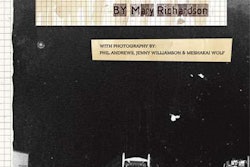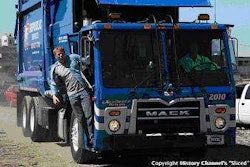
The agency will also relieve carriers that use electronic mobile communications/tracking technology of the burden of maintaining numerous other supporting documents to verify driver logs.
The new regulatory guidance and policy, which will take effect 30 days after publication in the Federal Register, will benefit those carriers who have faced additional scrutiny since the agency on Dec. 24, 2008, adopted a policy of treating the data from electronic mobile communications/tracking systems as supporting documents that could be demanded in a compliance review.
In 1997, FMCSA’s predecessor published a list of more than 30 types of supporting documents that carriers needed to retain to verify logs. In its new regulatory guidance, the agency said certain documents in that list are no longer used regularly by enforcement staff and will no longer be required by any motor carriers. Those documents are:
• Driver call-in records;
• International registration plan receipts;
• International fuel tax agreement receipts;
• Trip permits;
• Cash advance receipts; and
• Driver fax reports (cover sheets)

In general, FMCSA will continue to require other types of supporting documents that were listed in April 1997, but carriers using qualifying electronic mobile communication/tracking technology that capture time and/or position location information will be relieved of the requirement to retain many of the remaining supporting documents. For vehicles equipped with such systems, carriers no longer will need to keep documents such as weigh/scale tickets, toll receipts, traffic citations, credit card receipts and telephone billing statements.
To take advantage of this paperwork relief, however, motor carriers cannot challenge in HOS enforcement proceedings the accuracy of their own electronic mobile communication/tracking records. The new regulatory guidance spells out the specifications that electronic mobile communication/tracking systems must meet to qualify for the paperwork relief.
FMCSA’s new guidance and policy comes as the agency and the American Trucking Associations have been negotiating a settlement for several months of a lawsuit ATA filed in January regarding supporting documents. ATA’s suit, which was prompted in large measure by FMCSA’s December 2008 enforcement memorandum, seeks to compel the agency to issue a long-overdue regulation governing HOS supporting documents. The trucking group argued that without a regulation carriers did not have clarity and certainty over what supporting documents were required.
In the regulatory guidance, the agency confirmed its plan to proceed with a regulation to establish requirements for HOS supporting documents. FMCSA plans to issue a proposed rule, which also would expand the mandate for electronic onboard recorders, by the end of this year and to adopt a final rule within two years.
A copy of the regulation guidance/policy change will be available on the FMCSA website at least until it is published in the Federal Register.








